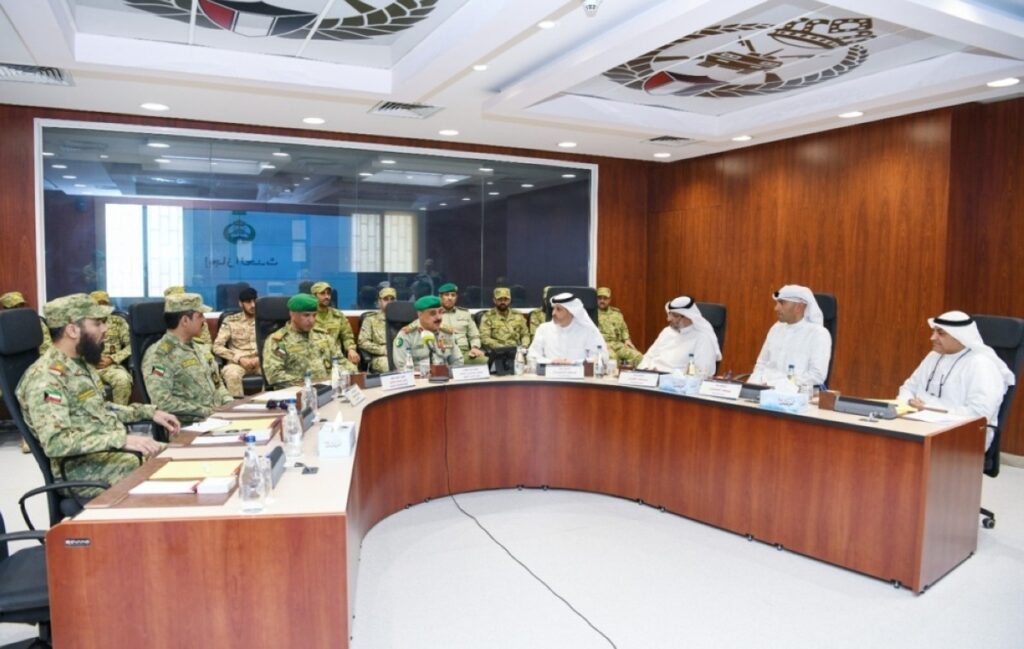KUWAIT: Kuwait is mobilizing its scientific expertise and emergency response systems to safeguard the environment and public health, as officials brace for potential fallout from the ongoing military escalation between Iran and the Zionist entity. Amid rising fears over chemical, radiological, and environmental risks following airstrikes on Iranian nuclear and military sites, Minister of Electricity, Water, and Renewable Energy Dr Sabeeh Al-Mukhaizeem convened a coordination meeting Monday with senior officials from the Ministry of Health and the Kuwait Institute for Scientific Research (KISR).
“The meeting focused on following up on the latest regional developments and reviewing preparedness to address any potential environmental repercussions resulting from these developments,” the ministry said in a statement.
Al-Mukhaizeem emphasized the importance of continued coordination between agencies and “taking all necessary precautionary measures to protect the country’s vital resources and mitigate any negative impacts that may arise from the current regional situation.” The meeting was attended by senior figures including Dr Adel Al-Zamil, Undersecretary of the Ministry of Electricity, and Dr Munther Al-Hasawi, Assistant Undersecretary for Public Health Affairs, alongside Dr Nasser Al-Juwaisri, Director of Radiation Prevention. Leading the KISR delegation was Director General Dr Faisal Al-Humaidan.

Minister Subaih Al-Mukhaizeem chairs a meeting with officials from KISR, the Ministry of Health, and the Ministry of Electricity, Water, and Renewable Energy on Monday.
Scientists on board
KISR experts – Dr Abdullah Al-Enezi, Director of the Environment and Climate Change Program; Dr Yousef Al-Osairi, specialist in hydro-environmental modeling of the Arabian Gulf and Kuwait Bay; and Dr Mansour Mahmoud Ahmed, an expert in water treatment and desalination technologies – presented advanced simulation systems and research aimed at evaluating and forecasting environmental impacts under various conflict scenarios.
Separately, the National Guard reinforced its role in Kuwait’s emergency readiness through a visit from the KISR delegation to the Sheikh Salem Al-Ali Al-Sabah Center for Chemical Defense and Radiological Monitoring. According to a National Guard statement, Undersecretary Lt Gen Hashim Al-Rifai discussed ways to enhance collaboration, train personnel, and share scientific expertise. The delegation was briefed on the center’s responsibilities in monitoring chemical and radiological pollutants. “The delegation praised the advancements in the National Guard’s chemical defense systems,” the statement noted, adding that further cooperation would strengthen Kuwait’s environmental security under the current regional conditions.
No abnormal radiation
Kuwait’s National Guard confirmed Sunday that the country’s radiological and chemical situation remains “normal and stable”, despite rising regional tensions. In a joint statement to Al-Akhbar TV, Col Khaled Lami, Chief of Operations and Training at the center, said the Guard operates 29 land monitoring stations across border and urban areas, as well as 15 sea stations in Kuwaiti waters, all capable of detecting chemical and radiological threats in real time. “The monitoring system has been working nonstop since its launch in 2015, and all measures are routine, not tied to any specific event or development,” Lami explained. Dr Al-Hasawi, who also attended Monday’s meeting at the Ministry of Electricity, confirmed that the Ministry of Health operates a parallel nationwide monitoring system involving both fixed and mobile stations. “No abnormal radiological levels have been recorded, and all readings are within normal limits in Kuwait,” he reassured Sunday. — Agencies

